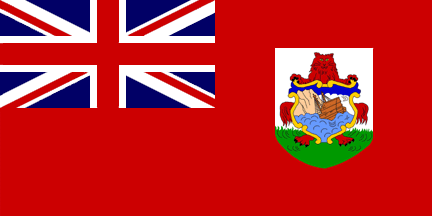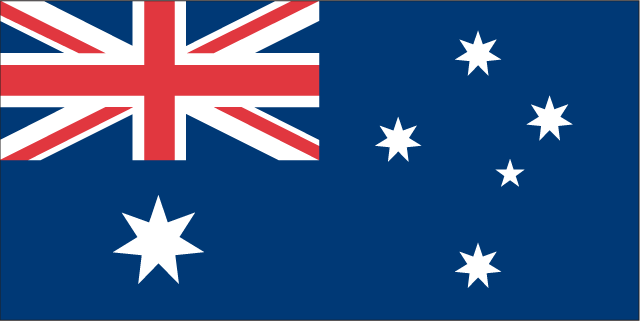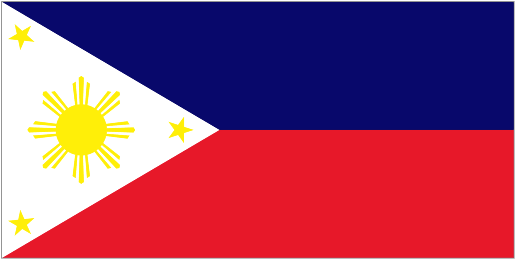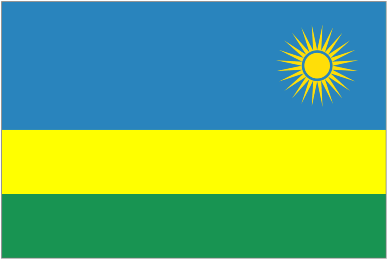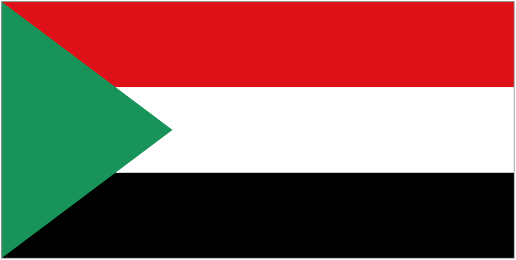
trade marks explained
What are trade marks?
A trade mark is a recognisable sign that identifies and distinguishes a product or service from others in the marketplace. It must be distinctive and differ sufficiently from existing trade mark registrations to avoid confusion for the consumer.
A trade mark is typically a word, logo or slogan, but it can also be a sound, colour, or a combination of any of these.
A typical trade mark example is the brand name of a cleaning product.
Registering a trade mark isn’t just a task for large companies. If you have a product or service that could benefit from a trade mark, you should protect your identity, whatever the size of your operation.
key features of TRADE MARKS
TERRITORIAL
Trade marks are territorial and cover either a country or groups of countries.
Scope
Trade marks are limited to a specific range of products and services.
valid INDEFINITELY
Valid indefinitely through renewals at defined periods.
Meet our trade mark experts
Whether you know nothing about trade marks or are an industry professional who wants to understand more about our services, we would love to hear from you.
tim noel
Tim is a Manager in the trade mark department, responsible for overseeing and managing the department on a day to day basis.
As a Chartered Trade Mark Attorney, Tim has over 17 years experience in the industry and he joined Lysaght in 2014.
Tim is responsible for the prosecution and renewal of trade marks in several of our African and Caribbean jurisdictions, as well as assisting with developing our database and systems.
richard stilwell
Richard is a Chartered Trade Mark Attorney, becoming qualified in 2018. Richard is a Manager in the patent and design department.
Richard joined Lysaght in 2015 and has considerable experience in both trade marks and patents, allowing him to have a dual role.
In the trade mark department, and alongside Martin, he handles prosecution and contentious matters in several complex jurisdictions.
latest TRADE MARK news
We previously reported that the enforcement date for the new Trade Mark Act had been delayed until 01 April 2025.
We have now received notification from the Intellectual Property Office that the enforcement date of this new law has been further delayed until May or beyond.
At this time, we cannot confirm with any certainty when the new law will be enforced. Until the new law comes into force, the old legislation is still in effect.
We are closely monitoring the situation and will provide updates once they become available.
As reported last week on our website, new IP laws relating to copyright, patents, and trade marks were unexpectedly brought into retroactive effect in the Bahamas from 1 February 2025. Whilst we are still awaiting written confirmation from BIPO and approval of the implementing regulations, we have analysed the new laws and summarise here some provisions of particular significance.
Lysaght will be present at both the upcoming CITMA Spring Conference (20-21 March 2025) in London, and the INTA Annual Meeting (17-21 May 2025) in San Diego.
We look forward to attending these discussions, as well as to meeting both new and existing colleagues, clients and agents from around the world. Tim Noel and Richard Stilwell are currently filling their schedules with meetings, so please email us at admin@lysaght.co.uk if you would like to meet with them.
On 25 February 2025, the Bahamas IPO (BIPO) informed practitioners in a verbal communication that new IP laws relating to copyright, patents, and trade marks became retroactively effective from 1 February 2025. However, the subsidiary legislation, including the implementing regulations and official fees, has not been finalised or approved and no timeframe has yet been provided for this.
We have received notification from the Intellectual Property Office that the enforcement date of the new Trade Marks Act in Bermuda has been delayed again, and a date of 01 April 2025 is now being considered. At this time, we cannot confirm whether the new law will be enforced on that date or whether there will be additional delays, but until the new law comes into force, the old legislation is still in effect.
It has come to our attention that new patent and trade mark laws are currently under review in the Republic of Kiribati which, once promulgated, will overhaul the current UK-based re-registration systems that currently exist there and will introduce national filing systems.
Two pieces of news have recently come to light regarding trade mark matters in Libya, which have significant implications for rights holders there. We summarise these developments relating to the cancellation of certain trade marks and an increase in the official fees for renewal payments.
We are pleased to report that the Bermuda Registry General has now issued an Industry Notice confirming that the new Trade Mark Act has been approved by the Bermudan Parliament.
In Iraq and the Kurdistan region, effective trade mark registration is increasingly critical as the economy grows and foreign investment rises. An important development in this field will be the adoption of the 11th edition of the Nice Classification in both regions from January 2025.
On 11 November 2024, the Ministry of Economy and Industry and Investment Trade in Sana'a issued Ministerial Decision No. 56 of 2024 which relaxes some of the restrictions previously imposed on Swedish and American trade mark applicants and owners. This Decision now permits the renewal of trade mark registrations owned by entities in the US and Sweden. Whilst it is not clear whether the restrictions have also been removed for UK-based right holders, we believe that the removal of the ban also applies here.
On 1 October 2024, Ethiopia’s Council of Ministers approved the country’s accession to the Paris Convention for the Protection of Industrial Property and the Madrid Protocol for the International Registration of Marks. Ethiopia’s accession to these IP treaties and to trade agreements such as the World Trade Organization (WTO)’s Agreement on Trade-related Aspects of Intellectual Property Rights (TRIPS), along with the necessary modernisation of Ethiopia’s IP laws, will serve to bring Ethiopia onto the global stage for IP and help to stimulate trade and investment in the country.
The Lebanese Intellectual Property Office (IPO) is currently facing significant operational difficulties due to the ongoing economic and political instability in the country. The challenging environment has led to staff shortages, as many employees are unable to attend work. In addition, technical issues with the online portal have further complicated the IPO’s ability to process applications efficiently.
We remind all applicants and owners of Cayman Islands patent, trade mark and design registrations, and all owners of trade marks in the Turks & Caicos Islands, that the next annual maintenance fees (AMFs) for such cases are due for payment on 1 January 2025. If these annual fees are not paid by 31 March 2025, penalty fees will accrue.
IP Australia has just announced some changes to the official fees for patents, trade marks, designs and plant breeder’s rights, which will come into effect on 1 October 2024. Inter alia, the filing fees for patents and plant breeder’s rights will increase, trade mark filing fees will remain unchanged, and designs filing fees will decrease.
The Intellectual Property Office of the Philippines (IPOPHL) has issued a memorandum which requires that the fees for the issuance and publication of a trade mark renewal must now be remitted along with the payment of the renewal fee instead of upon receipt of a Notice of Issuance. This new practice took effect on 25 July 2024 and it should serve to expedite the renewal process.
The Legislative Assembly of El Salvador has recently approved a new Intellectual Property Law, which will replace, update and combine into a single body the current "Law of Trademarks and Other Distinctive Signs" and the 1993 "Law of Intellectual Property". It will also create the Salvadoran Institute of Intellectual Property (IPSI) which will be in charge of managing procedures and mediating conflicts arising from IP rights.
The Libyan Trade Mark Office has announced that it will resume accepting new trade mark applications, as of 2nd September 2024.
In addition, some new requirements for trade mark applications were introduced in Libya with effect from 1 May 2024.
A new Law on the Protection of Intellectual Property was published in Rwanda on 31 July 2024 and came into force on the same day. The Law paves the way for a more streamlined approach for the filing of patent and trade mark applications, as well as clarifying aspects of their prosecution and registrability.
An official circular was issued by the Qatari Intellectual Property Department on 25 June 2024, outlining changes to the requirements for Powers of Attorney (POA) for IP matters
Qatar becomes the 131st member of the Madrid Protocol, enabling international trade marks to designate this Gulf state from 3rd August 2024.
All new UK applications for patents, trade marks or designs must appoint an address for service in the UK, Gibraltar or the Channel Islands. Since 01 January 2024, all comparable trade marks and re-registered designs derived from EU rights post-Brexit must have a UK address for service to respond to challenges filed by third parties.
The Intellectual Property Office based in Sana’a, Yemen has announced that trade mark rights owned by US and British companies are now invalid, and that they will no longer accept new applications. Furthermore, ongoing civil unrest has led to a de facto two-state country. To obtain trade mark, design and patent protection across the whole country, it is necessary to file applications in both Sana’a and Adan Registries.
Some new trade mark regulations came into force in Uganda on 2 February 2024 which, inter alia, have introduced the requirement that trade marks and notices be published in the Uganda Gazette, as was the case pre-2021.
The Government of Jersey has clarified its position on whether EU trade marks automatically extend to Jersey under current legislation, confirming that no such coverage has existed since April 2009. Trade mark owners wishing to obtain protection in Jersey should re-register UK national trade marks, or rely on the automatic coverage granted to IR(UK) designations.
We summarise here some recent amendments to the Trade Mark Regulations in Lebanon, which have brought about changes to the term of protection and some of the official fees associated with trade marks.
The Trade Marks Act 2023 and Trade Marks and Service Marks Regulations Amendment and Validation Act 2023 received formal approval in Bermuda on 13 October 2023.
Our Senior Trade Mark attorney, Martin Chinnery, will shortly be retiring. Whilst this is sad news for all of us here at Lysaght, it marks the start of an exciting new chapter for Martin.
We are pleased to announce the Trademarks Office in Sudan has resumed operations after a 10-month hiatus. Read here for more information.
At long last, the implementing regulations for the 2010 Trade Mark Act have been brought into force in Libya. These provide some much needed clarity to the practical considerations of trade mark applications, as well as bringing an increase in the official fees




